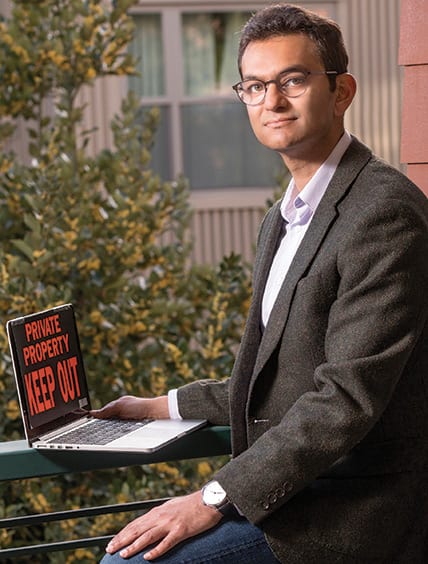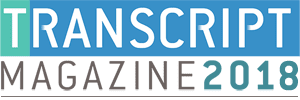
More publicity for Berkeley Law’s privacy work: the school claimed three of the ten annual Privacy Papers for Policymakers awards, with Chetan Gupta ’17 winning the inaugural student category.
Now an employment lawyer at Baker McKenzie’s Palo Alto office, Gupta probed whether individual actors can drive the adoption of privacy and security standards in a given marketplace, and why certain protective technologies gain broad acceptance. The idea came from studying the “Minority Effect,” where a small but vocal or picky minority can affect the choices of society as a whole.
“I found that widespread adoption normally requires that the end consumer be inconvenienced as little as possible, even if businesses incur a high cost of implementing the privacy-enhancing technology,” Gupta says. “Single actors do shape privacy improvements, but they tend to be dominant or significant players in their field.”
Among his case studies: HTTPS, the more secure, encrypted version of an earlier online protocol (HTTP). Gupta noted how quickly HTTPS was adopted once Google announced it would promote those pages in search results by ranking them higher and displaying red “not secure” warnings next to other webpage addresses in the browser. HTTPS adoption soared from less than 40 percent in 2015 to more than 80 percent today.
“Increased understanding of this issue can help businesses, policymakers, and consumers decide how best to improve privacy and security,” Gupta says. “It can also guide what privacy regulation should look like. For example, policies that make consumers absorb and act on large amounts of technical information probably do little to enhance their actual privacy.”
Gupta, who initially wrote the paper for his LL.M. writing requirement, presented his research findings at the U.S. Senate on February 27—a day before the Federal Trade Commission’s PrivacyCon event.
He credits James Dempsey, executive director of the Berkeley Center for Law & Technology, for helping him find everyday technologies to illustrate his hypothesis, and Co-faculty Director Chris Hoofnagle for instilling confidence. “Chris is an incredible mentor,” Gupta says. “He helped me shape my ideas, articulate my hypotheses, introduced me to people I could speak with to improve the paper, and even suggested suitable avenues for publication.”
